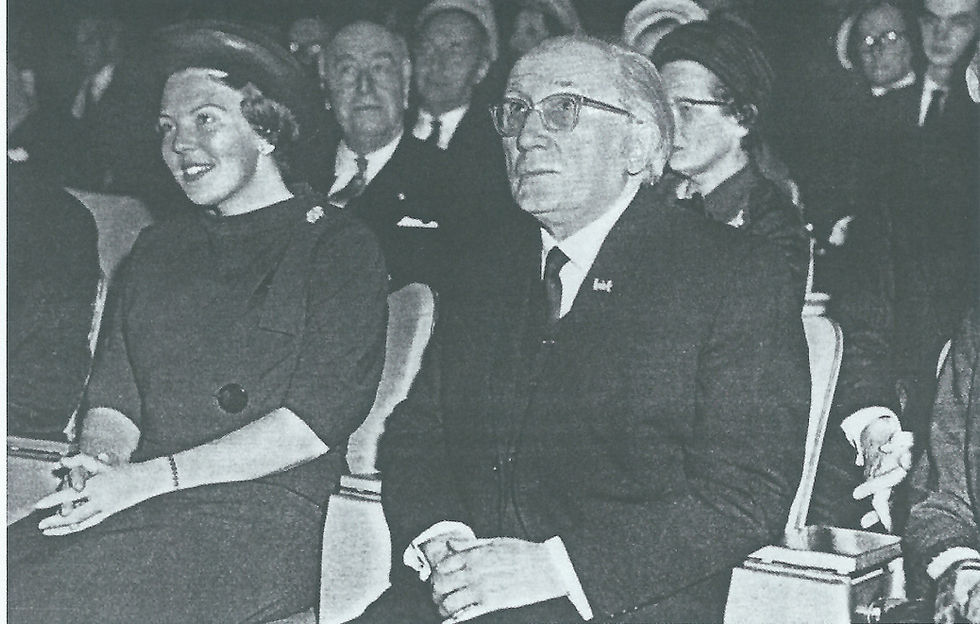Teaching the Faith Through Advent and Christmas Hymns
- Robert Mixa
- Dec 21, 2021
- 3 min read
Updated: Jan 26, 2022
Traditional Advent and Christmas hymns can be surprisingly effective tools for catechesis. Even when Mariah Carey’s “All I Want for Christmas is You” and other secular Christmas songs seem to be on an endless loop, these traditional hymns still show up on the radio waves in December and are easy to find. They can help us teach the faith in a post-Christian age that needs to become better acquainted with the beauty of the Gospel. Most people are already familiar with them, but haven’t considered their theological depth.
Parents should be singing these hymns with their children as a way of handing on the faith. But teachers can use them in the classroom too. When I taught back-to-back Old Testament and New Testament classes, I connected the two by focusing on Christmas, quickly approaching. I wanted my students to understand why and how Christmas acts as such a bridge. I needed something familiar and memorable, because I have found that the most effective catechetical moments happen when I am able to illuminate something the students already cherished but insufficiently understood. I assumed the students were not attending to the lyrics of these hymns and the theological lessons within them. They needed to take another look.
It’s interesting how learning another language makes you more appreciative of your own native tongue. I started to pay more attention to the words of our great hymns when my Polish wife introduced me to Polish Advent and Christmas songs. Learning the Polish words for familiar songs demonstrated to me their catechetical power, so I went back to the hymns I grew up with, finding in them a beauty I had missed.
This was especially true with the splendid “O Come, O Come Emmanuel.” I had listened to a Mars Hill Audio interview with English poet Malcolm Guite in which he explains the seven verses addressing the Messiah with a different biblical name. I decided to present the hymn to my class, because these names drew on the Old Testament and its fulfillment in Christ. Using this rich rendering of the O Antiphons helped my students better understand the faith and the liturgical season, and it made them evangelists; once they knew the meaning of the hymn, they were inspired to tell their family and friends about it over Christmas break.
Fr. Steve Grunow has already explained the history and meaning of the hymn in a previous Word on Fire post. I just want to encourage you to use it as an effective tool for handing on and understanding the faith.
The hymn is a collection of the seven antiphons that are sung at vespers prior to Christmas, starting on December 17. Each antiphon sings of a title ascribed to Christ. In a way, they flesh out a biblical Christology. The various translations of the hymn as it is typically sung—the “O Come, O Come Emmanuel” that you hear on the radio and at Mass—do not include all seven verses. I think it is best appreciated when all the antiphons are sung in order.
The seven antiphons and the day they are sung are as follows (delight in their beauty):
December 17:
O Wisdom, coming forth from the mouth of the Most High,
reaching from one end to the other,
mightily and sweetly ordering all things:
Come and teach us the way of prudence.
December 18:
O Adonai, and leader of the House of Israel,
who appeared to Moses in the fire of the burning bush
and gave him the law on Sinai:
Come and redeem us with an outstretched arm.
December 19:
O Root of Jesse, standing as a sign among the peoples;
before you kings will shut their mouths,
to you the nations will make their prayer:
Come and deliver us, and delay no longer.
December 20:
O Key of David and scepter of the House of Israel;
you open and no one can shut;
you shut and no one can open:
Come and lead the prisoners from the prison house,
those who dwell in darkness and the shadow of death.
December 21:
O Morning Star,
splendor of light eternal and sun of righteousness:
Come and enlighten those who dwell in darkness and the shadow of death.
December 22:
O King of the nations, and their desire,
the cornerstone making both one:
Come and save the human race,
which you fashioned from clay.
And, last, December 23:
O Emmanuel, our king and our lawgiver,
the hope of the nations and their Savior:
Come and save us, O Lord our God.
Singing the hymn “O Come, O Come Emmanuel” on each of these seven days, stressing the particular Antiphon of each day, is an effective way of handing on the faith, which has always been partially passed on through song. So continue the tradition by singing and reflecting on the Church’s ancient hymns.






Comments